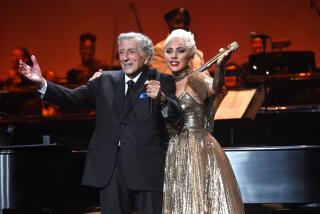U.S. to Find Bennett Is Stickler on Drugs
- Share via
WASHINGTON — In the early 1970s, when marijuana was as common and accepted as beer in college dormitories, two Harvard University freshmen had the misfortune of having as their proctor a young law student named Bill Bennett.
When Bennett found out that the two were selling drugs from their dorm room, he put a stop to it and went to the university administration to demand that they be disciplined. His unabashed contempt for drug use and his vehemence in trying to stamp it out did not make Bennett a popular figure, either with the administrators or the students.
He persisted, though, and eventually the two were suspended for a year. The other freshmen in the hall learned a quick lesson: Don’t use drugs when Bill Bennett is around.
Now the rest of the nation will be hearing the same lesson from William J. Bennett, whom President-elect Bush nominated Thursday as head of the new White House Office of National Drug Control Policy.
Lessons From Drug Czar
Bennett’s friends say that the new drug czar will teach the lesson with words, pictures and actions.
“He thinks you can’t just talk about how drugs are bad,” said John Walters, a longtime Bennett aide. “You have to show by your actions that you mean it. He doesn’t believe you have a public morality and a private morality that are different.”
Last year, Bennett, 45, and his wife, Mary, walked out of a Washington theater because the play “Nunsense” included a scene with a character snorting cocaine on stage.
Not that Bennett has conquered all of his own addictions. A burly man who is usually fighting a losing battle with his waistline, Bennett has been a heavy smoker for years. In response to a reporter’s question Thursday, Bennett said he would give up smoking before he took over as the nation’s top official in the war on drugs.
Two-Fisted Approach
As President Reagan’s education secretary, Bennett brought a tough-talking, two-fisted approach to the normally staid business of enunciating an educational philosophy for the nation’s schools and colleges.
In the view of his critics, Bennett was inclined to turn an education debate into a mud-wrestling match. But his aides say that his battles were not personal but philosophical.
“He was willing to take on the education Establishment because he disagreed with them,” said Loye Miller, Bennett’s press spokesman at the Education Department. “But he never did it on personal terms. He just had very strong convictions about the issues.”
Bennett criticized university leaders for offering students a smorgasbord curriculum, with lots of choice but no depth and focus. He derided the National Education Assn. for being more interested in wages and hours than education. He clashed with the Democratic leaders of congressional education committees over federal spending for education. He even took a shot at college students, once suggesting that Reagan Administration cutbacks in college aid might force them to give up their “three-week vacations” at the beach.
Grows Up in Brooklyn
William John Bennett was born into a middle-class Roman Catholic family in 1943 and grew up in the Flatbush area of Brooklyn, New York. He attended a Catholic boys school and a Catholic high school in Washington before going on to Williams College in Massachusetts, where he was one of the toughest members of the football team. He was graduated in 1965.
Bennett did graduate work in philosophy at the University of Texas at Austin, where he once had a blind date with Janis Joplin, the hard-living rock-and-roller who later died of a drug overdose. Asked once about their date, Bennett said only: “We drank a couple of beers.”
He taught religion and philosophy at the University of Southern Mississippi in 1967 and 1968 and earned a law degree at Harvard in 1971. After serving as an assistant to Boston University President John R. Silber, Bennett became director of the National Humanities Center in North Carolina.
Bennett built a national reputation for himself among neo-conservative intellectuals, and in 1981, Reagan picked him to head the National Endowment for the Humanities. A Democrat turned Republican, Bennett moved up to the Cabinet post in Reagan’s second term.
As education chief, Bennett often attacked drug use in schools. Principals, he said, needed to set an example by demonstrating zero tolerance for drug use among students and faculty.
In November, 1987, that stance brought him face-to-face with Douglas H. Ginsburg, the 40-year-old appeals court judge who had been nominated by Reagan to the Supreme Court. Within days of the nomination, it was revealed that Ginsburg, as a law professor at Harvard, had smoked marijuana.
While Reagan publicly pledged to stand behind his nominee, Bennett called Ginsburg and urged him to drop out. The next day, Ginsburg announced his withdrawal.
In the aftermath, several young politicians, including Sen. Albert Gore Jr. (D-Tenn.), revealed that they had smoked marijuana in college. Asked at the time about drug use in his own past, Bennett issued an intriguing statement.
“I will not join this procession of confessors,” he told the Associated Press. “If I have any confessions to make, I will make them to a priest. I will stipulate for the record, however, I was young.”
More to Read
Sign up for Essential California
The most important California stories and recommendations in your inbox every morning.
You may occasionally receive promotional content from the Los Angeles Times.














